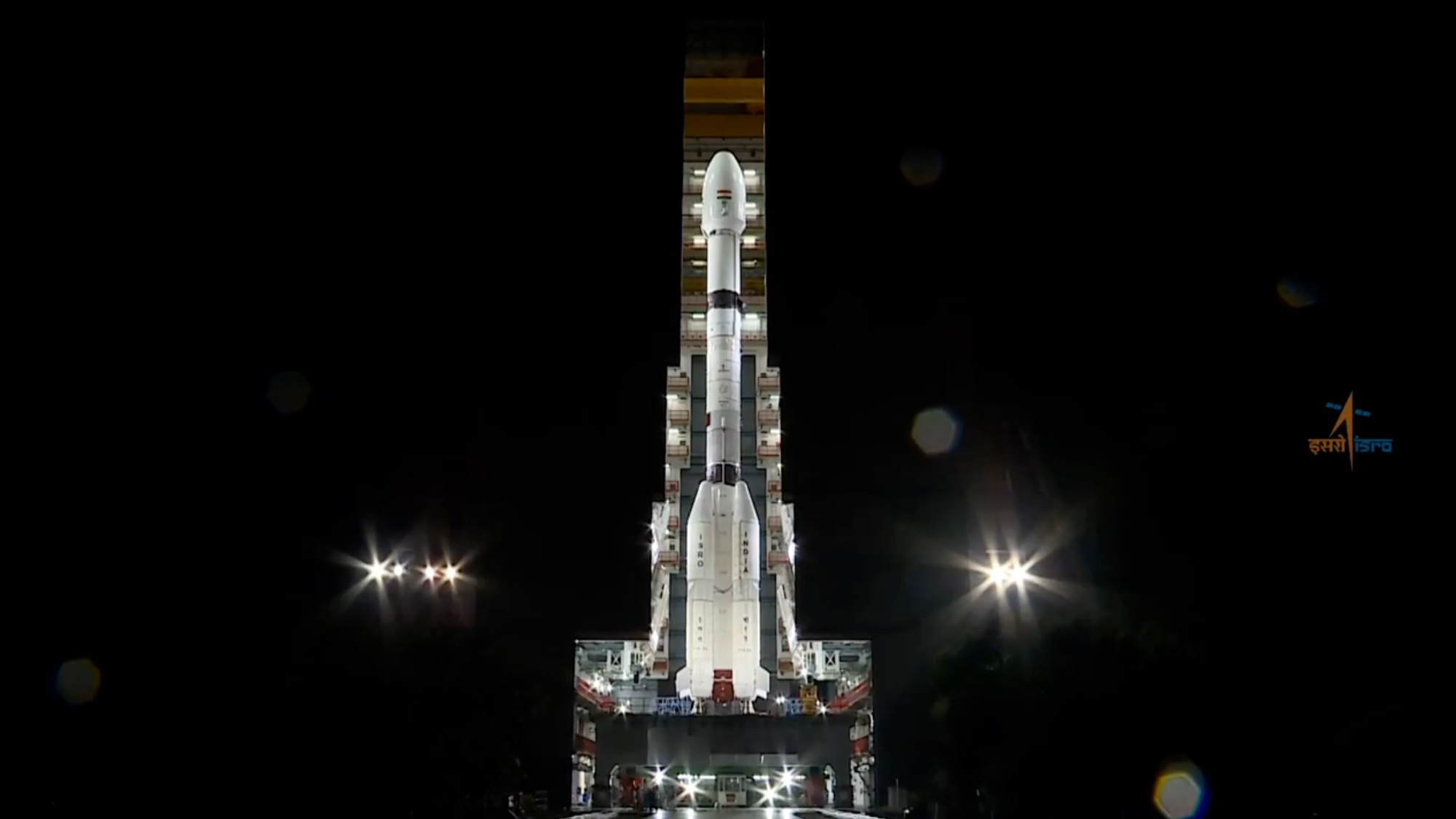A powerful U.S.-Indian Earth-observing satellite has made it to the launch pad.
On July 24, the Indian Space Research Organization (ISRO) rolled the NISAR (NASA-ISRO Synthetic Aperture Radar) spacecraft and its GSLV rocket out to the pad at Satish Dhawan Space Centre in Sriharikota, on India's southeastern coast.
Launch is scheduled for Wednesday (July 30) at 8:10 a.m. EDT (1210 GMT; 5:40 p.m. India Standard Time). You'll be able to watch it live here at Space.com, courtesy of ISRO.

As its name suggests, NISAR is a joint effort between NASA and ISRO. The satellite will study our planet in detail from orbit for at least five years using synthetic aperture radar, which can gather data in all weather and lighting conditions.
"NISAR will image the global land and ice-covered surfaces, including islands, sea ice and selected oceans every 12 days," ISRO officials wrote in a mission description.
NISAR's "primary objectives are to study land and ice deformation, land ecosystems and oceanic regions in areas of common interest to the U.S. and Indian science communities," they added.
The NISAR launch will be the 18th liftoff to date for the GSLV, an expendable three-stage rocket that stands 169.6 feet (51.7 meters) tall.
If all goes according to plan, the 5,300-pound (2,400-kilogram) satellite will deploy into orbit about 18.5 minutes after liftoff on Wednesday. NISAR will do its work from a circular orbit 464 miles (747 kilometers) above Earth that takes it over the planet's poles.

.jpg) 13 hours ago
1
13 hours ago
1
 English (US)
English (US)